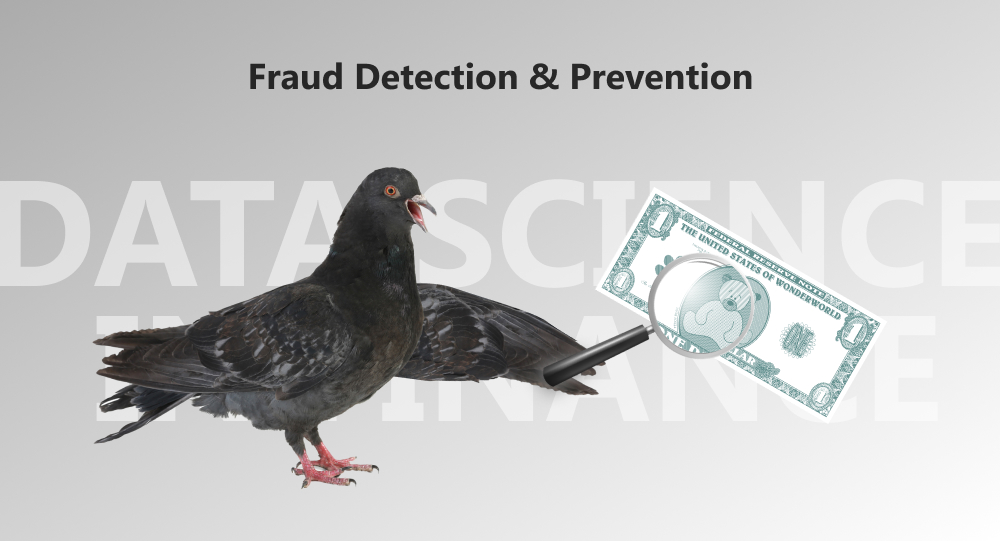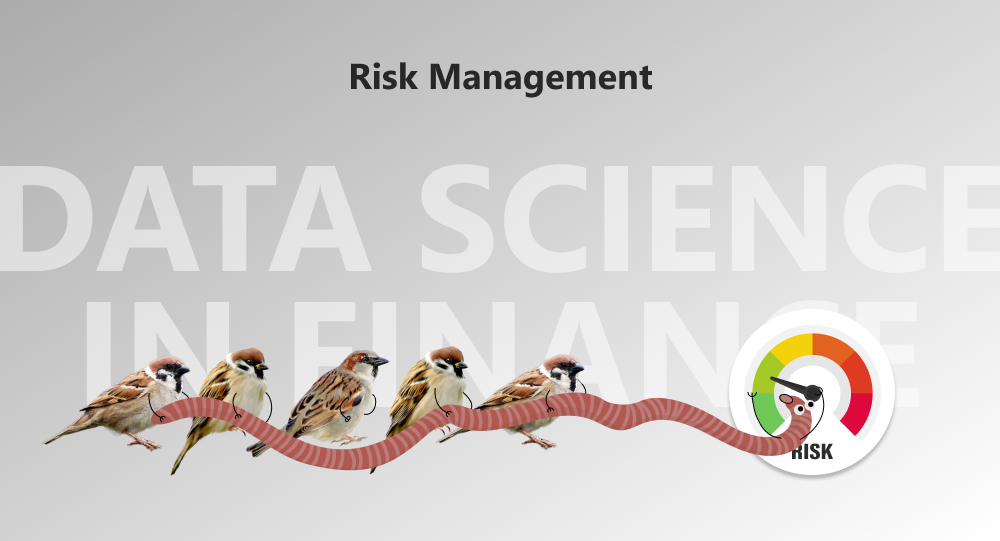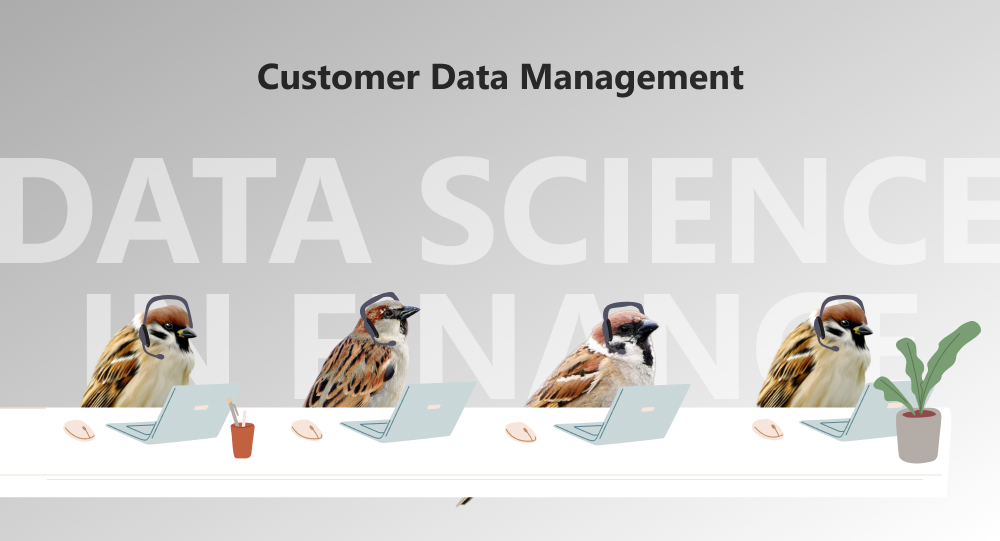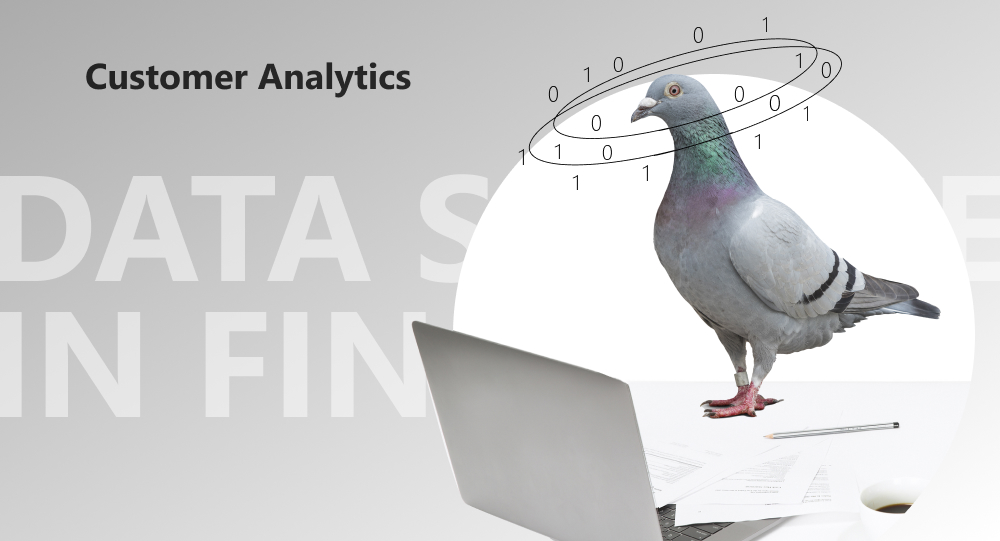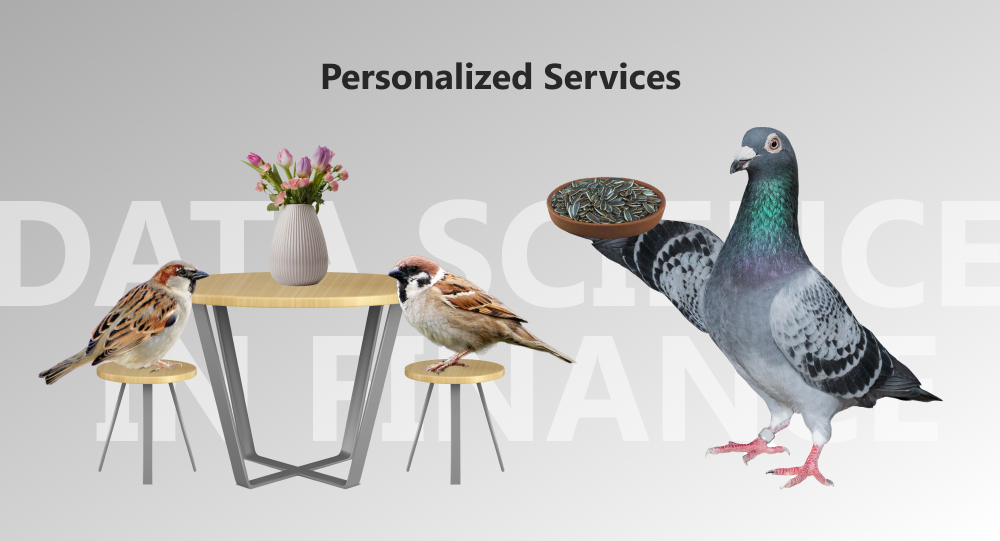Data has quickly become considered the greatest asset of any organization and with the technological development and the deeper reach of the internet, the amount of data generated every day is increasing at phenomenal rates. Simultaneously, the success of strategies in the finance industry has always depended on the accuracy of the gathered data, its analysis and risk assessment. In this article, we would like to explore the impact of data science on the industry and how it has allowed financial organizations to find solutions to some of their major concerns.
written by:
Aliaksandra Tsikhanovich
Data has quickly become considered the greatest asset of any organization and with the technological development and the deeper reach of the internet, the amount of data generated every day is increasing at phenomenal rates. Simultaneously, the success of strategies in the finance industry has always depended on the accuracy of the gathered data, its analysis and risk assessment. In this article, we would like to explore the impact of data science on the industry and how it has allowed financial organizations to find solutions to some of their major concerns.
Contents
Do Some Science
90% of all data on the internet has been created in the past five years and, according to the World Economic Forum, the amount of daily generated data is predicted to reach 463 exabytes (a million trillion bites) by 2025, which can be compared to over 212 million of DVDs per day. More and more people are using the internet these days and they use it in continuously different ways. All newly generated and processed data carries a vast amount of actionable insights, which is crucial across a variety of industries, and in particular, finance.
Data science is what enables companies to translate all this data into valuable insights, helping to identify pain points and pick the right strategies. Importantly, it allows the use of real-time data which has avoided latency issues that companies have faced in the past. In years gone by, by the time information had been processed, it was already somewhat outdated making any analysis practically meaningless and, importantly, inaccurate.
While data science has already been an important part of the finance industry for some time, it will be especially crucial in adapting to the post-pandemic world. The pandemic itself and the measures that have been adopted to fight it have led to the global credit crisis, low interest rates, cash-insecure consumers and an increasing number of fraud cases. Therefore, a powerful capability such as data science is necessary for risk management and continuous planning to be prepared for any upcoming challenges.
How Data Science Is Reshaping the Finance Industry
Financial analysts have always relied on data to yield valuable insights. However, data science has completely transformed the industry by providing more advanced analytical tools and automated algorithms. Machine Learning (ML), a subset of data science, through the use of the modelling algorithms, allows identifying links between data, drawing predictions for the future and even assembling algorithms that evolve on their own. It also makes processes simpler, more secure, more efficient and free of human error. Using the ML-based platform called COIN, companies are able to review just in a few hours the number of loan agreements that used to take 360,000 hours of manual work.
The application of tools such as machine learning and other advanced analytical algorithms enables financial organizations to enhance strategic decision making, improve performance, learn more about their customers, and thus, as a result, deliver better solutions and improved customer experience, whilst also exploring new revenue opportunities.
It goes without saying that with the rise of data science in the finance industry, the importance of financial data scientists has increased significantly too. According to the study conducted by EY, 53% of the respondents noted that big data and advanced analytics are going to be the necessary financial skills in the next five years. At the same time, the demand for data scientists across various industries, including finance, has increased by 50% in 2020. Data scientists possess a broad skill set that allows them to help banks to attain knowledge from giant data sets, capture and analyze new sources of data, build predictive models, etc.
Application of Data Science in Finance
Now that we have discussed the influence of data science on the finance industry, let’s have a look at its six main applications.
1. Fraud Detection & Prevention
One of the major concerns in the financial sector is a fraud, which is why fraud detection is one of the most valuable benefits of data science. According to Feedzai, the fraud rates increased by 60% during the COVID-19 pandemic outburst. Machine learning tools help financial organizations to significantly reduce and prevent losses, better protect their clients and maintain reputation by aiming at real-time tracking and fraud detection. The algorithms built with the help of machine learning can learn from data, detect abnormal user behaviors, predict risks, and notify organizations every time there is a potential threat. The more transactions there are, the higher the chance of fraudulent activity. And, therefore, the more important it is for the financial institutions to be able to detect anomaly as soon as it arrives. Data science is essential for detecting fake insurance claims, credit card fraud, suspicious and duplicate transactions, account theft, and more. Furthermore, predictive models are also used for cyberattack termination.
2. Risk Management
Risk management is a crucial pillar in finance, as it regulates financial activities and helps to avoid uncertainty, financial losses, decreased brand value, potential crisis, and more. The risks in the finance industry can vary in importance level, size, and type of loss; it can be the level of customer trustworthiness, the inflow of competition, uncertainties on the market — to name just a few. Depending on the type of risk, there are different models used for its detection and management, all whilst data science can additionally allow the automation of the process to a great level. Furthermore, machine learning algorithms are dynamic in updating and improving themselves without human interference.
Some of the most common ways data science helps with risk management in finance are:
- assessing the creditworthiness of the candidates;
- assessing the financial health of the company that is considered for acquisitions, merger, investment or corporate financing;
- making reliable trading predictions;
- analyzing customer data and market landscape in real-time to alleviate risks, etc.
3. Algorithmic Trading
One of the major and most revolutionizing applications of data science in the finance industry is algorithmic trading. When it comes to trading, every second is at stake, which is why fast real-time analytics are crucial. In simple words, for each passing second, a machine conducts multiple trades, even at times simultaneously, based on an algorithm and without the necessity to be approved by an analyst. Lightning speed is not the only perk here, trading happens with high frequency and the model adjusts itself to improve its estimations in the future. All that helps to avoid human error, dodge losses that happen due to missed opportunities caused by hesitation, find new trading strategies, and gain a competitive edge. Furthermore, together with artificial intelligence, data science also brings in predictive analytics, which continuously amplifies predictions about the market and foresees future events that can be acted upon.
4. Customer Data Management
Transactions, social media activity, mobile interactions, etc. — it all makes up the vast amount of customer data that financial institutions need to store and process. This can cause problems as it can be quite challenging to manage and extract a full value of a big variety of data in such size. However, with data science and machine learning, it becomes possible to even handle ‘unstructured’ data employing text analytics, data mining, Natural Language Processing (NLP), and machine learning algorithms. As a result, customer data is stored more efficiently and is taken full use of for extracting practical insights, the patterns in customer behavior are spotted, and changes and trends in the financial market are examined more precisely.
5. Customer Analytics
Based on past behavioral trends, customers can be segmented according to their level of risk, income, expenditure, etc. This helps to differentiate customers by their profitability and align the strategies and budget accordingly — find ways to retain and appeal to those customers who bring more value while cutting down on those who cause financial losses. It becomes possible to gain insights into the factors influencing customer engagement and their sentiment towards specific financial products, and then adjust marketing strategies and modify certain elements in a new product.
6. Personalized Services
As already mentioned in a previous point, data science is a powerful tool for helping financial organizations to understand their customers — their preferences, interests, needs, desires, and concerns. As a result, this also allows companies to provide more personalized and individualized services and deals, build predictive models of customer behavior and optimize other financial business decisions. They can also optimize communication and feedback, utilizing natural language processing and speech recognition software. This is crucial not only in finance, these days personalization has become a defining factor for staying competitive in any industry, as customer expectations are increasing together with the rivalry on the market.
Furthermore, when it comes to combining data science tools with AI tools, it becomes feasible to understand human language and emotion, bringing personalization to a whole new level.
Bottom Line
More so than ever, data has become possibly the most valuable commodity on the market. And, getting an edge over the competition depends a lot on how well organizations manage to utilize collected data, especially when it comes to finance. However, without proper tools, all the value of this data is lost. Data science techniques have truly revolutionized the finance industry by giving financial institutions the tools to extract practical insights and then use them to remarkably increase the accuracy in the detection of fraud and various anomalies, reduce risks, minimize losses, improve strategical decision making, stand out from the competition by utilizing algorithmic trading, increase customer loyalty, and automate various processes, just to name some of the applications.
To find out more about the ways data science tools implementation can benefit your business, please contact our Support Team or visit our website.

Contacts
Feel free to get in touch with us! Use this contact form for an ASAP response.
Call us at +44 151 528 8015
E-mail us at request@qulix.com




